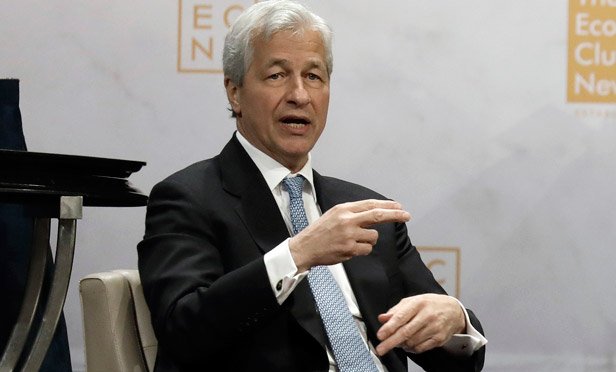
 Jamie Dimon (Photo: Bloomberg)
Jamie Dimon (Photo: Bloomberg)
The two biggest trading houses on Wall Street are warning of a slump.
Citigroup Inc. said trading revenue has declined so far this quarter, joining JPMorgan Chase & Co. in reporting a downturn for the business.
A burgeoning trade war, the U.K.'s planned exit from the European Union and escalating tension between the U.S. and Iran have weighed on market sentiment in recent weeks, according to Citigroup Chief Executive Officer Michael Corbat.
"Clearly, trading revenue and wallets right now are down," Corbat said Wednesday at a conference in New York. "In periods of uncertainty, things tend to become pretty muted."



